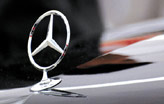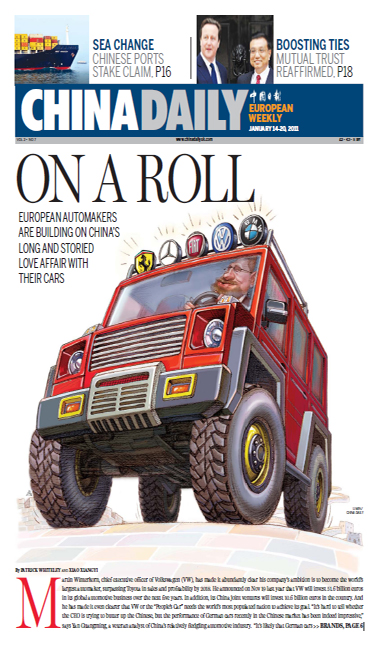On a roll
Updated: 2011-01-14 10:37
By Patrick Whiteley and Xiao Xiangyi (China Daily European Weekly)
"It will definitely have an impact on domestic car sales, and actually it will influence the entire car market," says Chen Shihua, spokesman for CAAM.
"But since China's car market is relatively stable, market share for domestic cars is not likely to go downward in 2011.
"A 1,000 or 2,000-yuan tax is not that big a deal for car buyers. In addition, a 3,000 yuan subsidy for fuel-efficient cars may serve as a follow-up policy for the original preferential policy.
"Foreign automobile manufacturers are actually feeling nervous. Domestic cars, with its continuously improved quality, technology, inner ornaments and favorable price, are big challenges for foreign brands."
Although Volkswagen led the way for foreign carmakers in the early 1980s, two other car-making titans were given first bite at China's auto industry cherry.
Almost three decades ago, Wang Daohan, then mayor of Shanghai, first invited Toyota and General Motors to start a Chinese-foreign joint venture, but both refused either for China's lack of solid foundation to make cars or for the lack of an adequate Chinese market.
"Volkswagen from Germany was the first foreign automaker who showed sincerity, foresight and generosity," Yan says.
"China at that time was really backward. VW brought technology and money to China with their belief that this virgin land would turn out a profitable reward. Over all these years, the success of Shanghai VW was by no means automatic."
One of pioneers behind VW's success was the first vice-chairman of Shanghai Volkswagen Martin Posth, who described his experiences in his book 1,000 Days in Shanghai: The Volkswagen Story - The First Chinese-German Car Factory.
After seeing Chinese workers banging on iron sheets in rundown workshops in 1984, Posth was doubtful VW could ever work with the locals. And one of his biggest challenges, he says, is not managing Chinese staff, but rather his fellow Germans.
He says translators walked off the job in frustration when major misunderstandings erupted between the straight-talking Germans and nuance-laden Chinese. But despite the challenges, Posth left China in 1988 with Shanghai Volkswagen zooming down China's highway.
Posth says the success of a joint venture in China depends not on how a foreign firm can "dominate" but on how it can build trust and collaborate in an honest way with Chinese partners. He says a motor executive needs "good nerves, the right arguments, and most importantly patience and endurance".
Yan says it is not an exaggeration that Volkswagen is the backbone of China's automotive industry. "It has become a symbol of an era," Yan says.
Not all European carmakers have enjoyed the success of Volkswagen. Fiat's failure with Nanjing Auto is an example of how culture clashes can disrupt operations.
Analysts say internal disagreements between foreigners and the Chinese caused the fall, and one of the telling signs of disarray was the high turnover of senior staff. From 2003 to 2007, the partnership replaced its sales and marketing chief seven times and its president four times.
French automaker PSA Peugeot Citroen also suffered from China's culture-clash syndrome after an unsuccessful 25-year partnership with Dongfeng Motors.
In 2009, it moved 272,000 cars in China, accounting for 3 percent of the nation's passenger car market - less than one-fifth of what Volkswagen achieved.
Company insiders say reasons for the fraught position in China include its arrogance, insufficient localization and poor branding.
Paper's Digest

Posh parade
Luxury carmakers are gearing up for rich pickings in China.
Preview of the coming issue
Driving ambition
Sea Change
Specials

Hu visits the US
President Hu Jintao is set for a state visit to the United States from Jan 18 to 21.

Royal ring
British royal engagement ring spurs demand for chinese replicas.

Stars on horizon
The 'longlist' for Literary Prize raises strong hopes about future of East Asian writers of English books.
